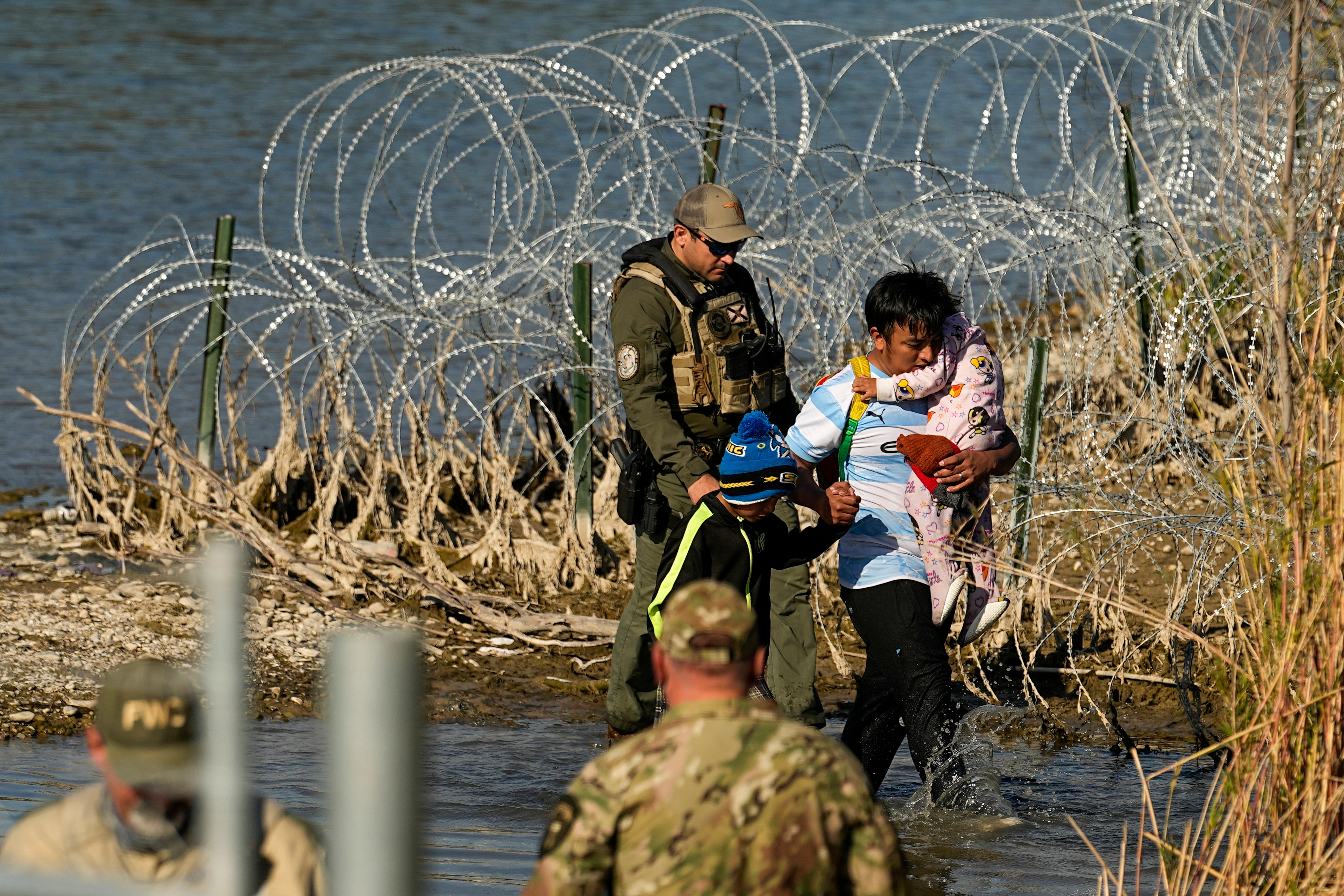Supreme Court extends pause on Texas law that would allow state police to arrest migrants
The Supreme Court has extended a pause on a Texas law that would allow state police to arrest migrants accused of crossing into the U.S. illegally

Your support helps us to tell the story
From reproductive rights to climate change to Big Tech, The Independent is on the ground when the story is developing. Whether it's investigating the financials of Elon Musk's pro-Trump PAC or producing our latest documentary, 'The A Word', which shines a light on the American women fighting for reproductive rights, we know how important it is to parse out the facts from the messaging.
At such a critical moment in US history, we need reporters on the ground. Your donation allows us to keep sending journalists to speak to both sides of the story.
The Independent is trusted by Americans across the entire political spectrum. And unlike many other quality news outlets, we choose not to lock Americans out of our reporting and analysis with paywalls. We believe quality journalism should be available to everyone, paid for by those who can afford it.
Your support makes all the difference.The U.S. Supreme Court extended a pause Tuesday on a Texas law that would allow police to arrest migrants accused of crossing into the country illegally as federal and state officials prepare for a showdown over immigration enforcement authority.
Justice Samuel Alito's order extending the hold on the law until Monday came a day before the previous hold was set to expire. The extension gives the court an extra week to consider what opponents have called the most extreme attempt by a state to police immigration since an Arizona law that was partially struck down by the Supreme Court in 2012.
U.S. District Judge David Ezra had rejected the law last month, calling it unconstitutional and rebuking multiple aspects of the legislation in a 114-page ruling that also brushed off claims by Texas Republicans of an “invasion” along the southern border. But a federal appeals court stayed that ruling and the Justice Department asked the Supreme Court to intervene.
Republican Texas Gov. Greg Abbott signed the law, known as Senate Bill 4, in December. It is part of his heightened measures along the state's boundary with Mexico, testing how far state officials can go to prevent migrants from crossing into the U.S. illegally after border crossing reached record highs.
Senate Bill 4 would also give local judges the power to order migrants arrested under the provision to leave the country or face a misdemeanor charge for entering the U.S. illegally. Migrants who don’t leave after being ordered to do so could be arrested again and charged with a more serious felony.
In an appeal to the high court, the Justice Department said the law would profoundly alter “the status quo that has existed between the United States and the States in the context of immigration for almost 150 years.”
U.S. officials have also argued it would hamper the government's ability to enforce federal immigration laws and harm the country's relationship with Mexico.
The battle over the immigration enforcement law is one of multiple legal disputes between Texas officials and the Biden administration over the extent to which the state can patrol the Texas-Mexico border to hamper illegal crossings.